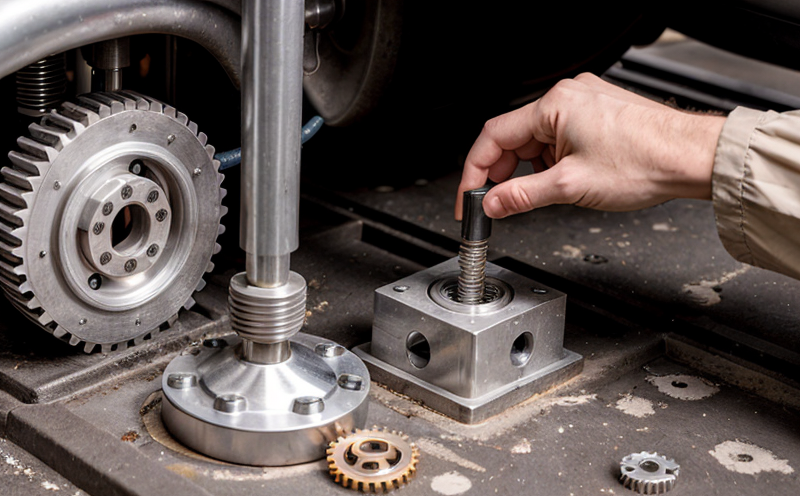Mechanical Property Testing
In additive manufacturing (AM) and 3D printing, mechanical property testing is crucial to ensuring that parts meet design specifications and perform reliably under various conditions. Mechanical properties such as tensile strength, yield strength, elongation at break, hardness, impact resistance, and fatigue life are essential parameters that determine the suitability of materials for specific applications.
Mechanical tests assess how a material behaves when subjected to external forces or stresses. These tests help engineers and manufacturers understand the mechanical characteristics of parts produced via AM techniques like selective laser sintering (SLS), direct metal laser sintering (DMLS), electron beam melting (EBM), and fused deposition modeling (FDM).
Testing involves subjecting samples to controlled loading conditions, either in tension, compression, bending, or torsion. The resulting data provides insights into the material's strength, ductility, toughness, and elastic modulus, which are critical for designing parts that can withstand real-world stresses.
The accuracy of mechanical property testing is paramount, as it directly impacts product performance and safety. For instance, in aerospace applications where failure could lead to catastrophic consequences, precise control over material properties ensures reliable operation. Similarly, in automotive manufacturing, mechanical tests ensure that components like engine blocks or transmission parts meet the required durability standards.
Standardized testing methods such as ISO 13917 for tensile testing and ASTM E8M for impact testing provide a framework to ensure consistency across laboratories worldwide. By adhering to these international standards, labs like Eurolab can produce reliable and comparable data that meets industry expectations.
Specimen preparation is another critical aspect of mechanical property testing in AM and 3D printing. The type of material, geometry, and orientation of the sample significantly influence test results. For example, a part printed with a specific layer thickness or orientation might exhibit different mechanical properties compared to one produced differently. Proper preparation ensures that tests accurately reflect the intended performance of the end product.
- Sample Preparation: Ensures accurate and reliable testing by adhering to established protocols for sample creation, including size, shape, and orientation relative to the build direction.
- Testing Equipment: Utilizes advanced machines capable of precise force application and measurement. Modern systems often incorporate automated data collection and analysis features.
- Data Analysis: Employing sophisticated software tools to interpret test results, providing insights into material behavior under various loading conditions.
Eurolab Advantages
Eurolab prides itself on delivering top-tier mechanical property testing services tailored specifically for the additive manufacturing and 3D printing sectors. Our team of experienced professionals combines cutting-edge technology with rigorous quality assurance processes to ensure accurate, reproducible results.
We leverage state-of-the-art equipment from leading manufacturers such as Instron and MTS Systems, which are capable of performing a wide range of mechanical tests on AM parts. This diverse portfolio allows us to cater to different material types and geometries encountered in the industry.
Our laboratories maintain strict adherence to international standards like ISO 13917, ASTM E8M, and EN ISO 1042-1, ensuring that our test results are both reliable and comparable across borders. This commitment to compliance underscores Eurolab's dedication to providing high-quality testing services.
Moreover, Eurolab offers comprehensive support throughout the testing process, from initial consultation with clients regarding sample preparation to final report generation. Our team works closely with research & development teams, quality assurance departments, and procurement specialists to understand their specific needs and tailor our services accordingly.
Why Choose This Test
- Precision: Our advanced testing equipment allows for highly precise measurements of mechanical properties, enabling accurate assessments even for complex geometries.
- Compliance: We ensure that all tests adhere strictly to relevant international standards, guaranteeing consistency and reliability in results.
- Expertise: Our skilled technicians have extensive experience working with additive manufacturing materials and processes, providing valuable insights into test outcomes.
- Customization: We offer flexible testing options to meet the unique requirements of different clients, whether they are developing new materials or optimizing existing ones.
Competitive Advantage and Market Impact
Incorporating mechanical property testing into your quality control processes can significantly enhance your competitive position in the market. By ensuring that every part produced via AM meets stringent performance criteria, you demonstrate a commitment to excellence that resonates with discerning customers.
Customers value products that are not only innovative but also reliable and durable. Mechanical property testing helps establish trust by providing tangible evidence of your product's capabilities. This can lead to increased market share as potential buyers recognize the added value provided by thoroughly tested components.
In addition, meeting rigorous testing standards positions you as a leader in this rapidly evolving field. As regulatory bodies and end-users demand higher levels of quality assurance, being able to document robust mechanical performance becomes increasingly important. This not only protects your reputation but also opens up new opportunities for collaboration with other industry leaders.





